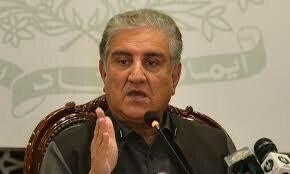LAHORE: Massive delay in outsourcing of the operations of freight and passenger trains allegedly due to the inefficiency and other issues on the part of senior officials is not only swelling Pakistan Railways’ (PR) deficit, but also leading to under-utilisation of resources.
“There is no enabling environment for those who want to join hands with the PR to take it out of the severe financial crisis,” said an official source in the department.
“On the one hand, the PR’s revenue continues to decline, leading to an increase in deficit along with the under-utilisation of resources, while on the other the department is discouraging the private sector that recently offered an accumulative bid of Rs13 billion for running the freight wagons/trains (except the Yousafwala-Karachi coal transportation),” the official, requesting anonymity, explained. “It is sad that the entire bidding process was scrapped just to keep the private sector away.”
A couple of months ago, Railways Minister Azam Khan Swati had revealed that the PR had suffered accumulated losses of Rs1.2 trillion in the last 50 years -- 90 per cent of which were recorded in the last two decades alone.
Income declines as freight, passenger train operations not outsourced yet
In July, the department in its performance report (FY 2020-21) had admitted that its revenue in four sectors declined by Rs1.25bn approximately and expenses in three major heads increased by Rs2.56bn.
“The revenue through passenger trains was recorded over Rs21.881bn which was Rs22.7295bn in the preceding fiscal year (2019-20) -- a fall of Rs848.566 million. The income earned through military traffic (transportation of armed forces goods) was recorded at Rs544.36m, which was Rs614.106m in the preceding year -- a difference of Rs69.74m,” the report stated. However, in four other sectors, the PR revenue showed an upward trend.
“The existing liabilities of the PR related to pension, gratuities etc alone range between Rs10bn and Rs11bn. Other liabilities (payments to contractors, bills etc) worth billions are separate in addition to the payment of salaries and pension (over Rs5bn) each month. On the other hand, the total revenue (per month) still ranges between Rs4bn and Rs4.5bn that is not encouraging at all,” the official explained.
Recently, 11 companies interested in commercial operations of freight wagons through their bids had cumulatively offered about Rs13bn per annum for using 2,500 high and low capacity wagons. The railways ministry found the offer encouraging.
However, later the bureaucratic approach created hurdles in finalising the deal on the basis of rates and other technical issues. Most of the participating firms called the bidding process unfair and while rejecting the evaluation process, urged the PR authorities to go through the facts, bidding documents, rates and requests for proposal and ensure merit while awarding the project to eligible firms.
The PR management also displayed unsatisfactory performance in outsourcing the operations of passenger trains to the private sector as well as controlling rail accidents. “The PR has also failed to procure new freight wagons, passenger coaches and other important items during the last three years due to very slow or delayed decision-making on the part of officers,” the official said.
PR Chairman Dr Habibur Rehman Gilani told Dawn that the issue was that the officers neither learnt themselves nor did someone train them to work with the private sector in the past. They were also averse to taking bold decisions, which kept them from running train operations and dealing with other issues whether in loss or profit.
He said the Ministry of Railways was well aware of the issues, especially outsourcing of freight and passenger train operations. “We have taken notice of the recent bidding related to outsourcing of the freight wagons. The minister has also constituted a high-level committee to address grievances of the bidders and other legal issues hindering participation of the private sector,” he explained.
He said the ministry had also given a nod to outsource passenger trains without distinguishing between those making loss or profit.
Published in Dawn, October 16th, 2021













































